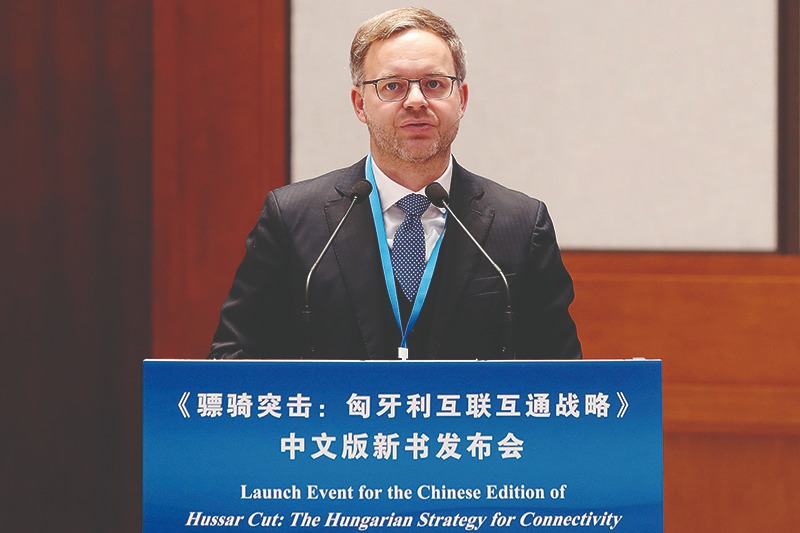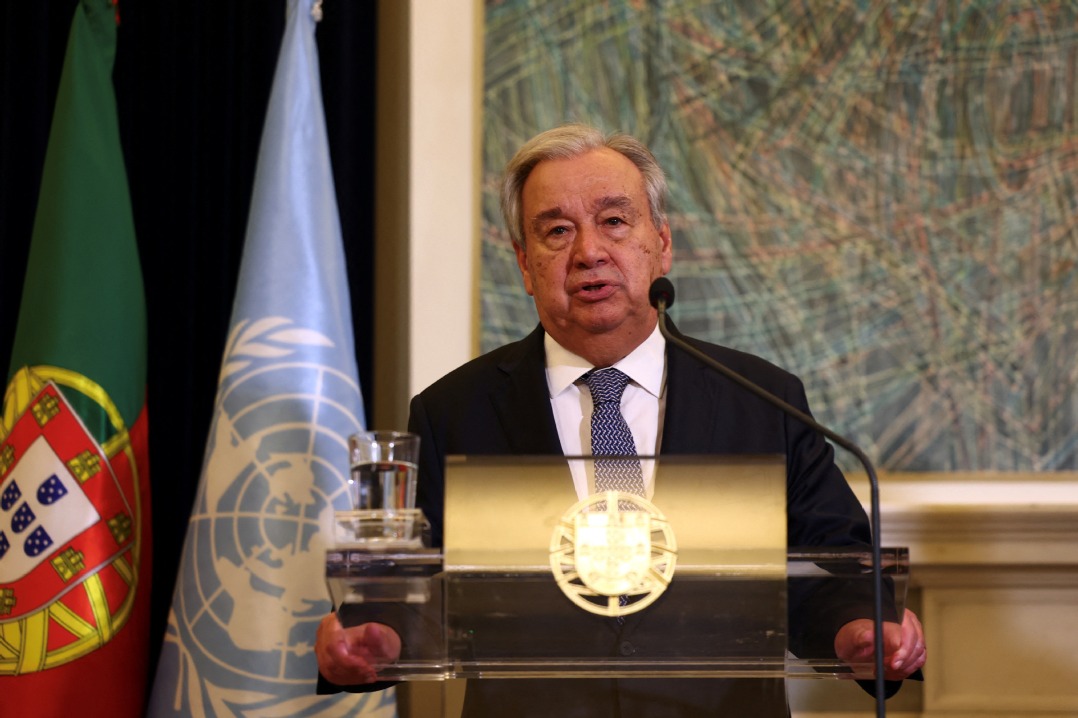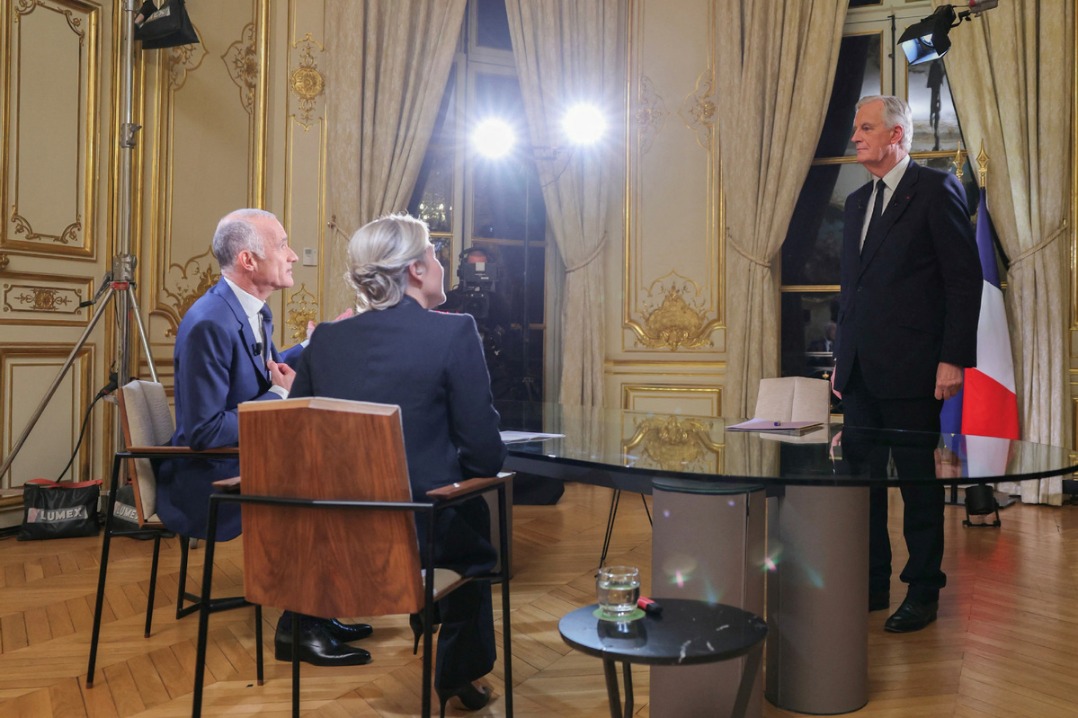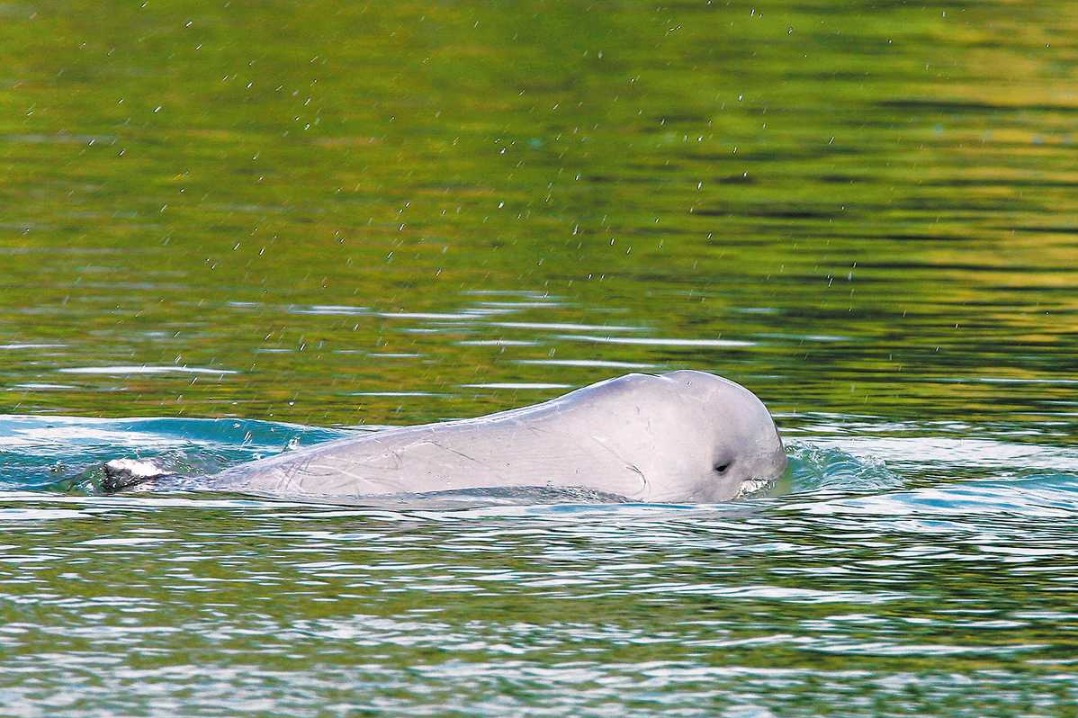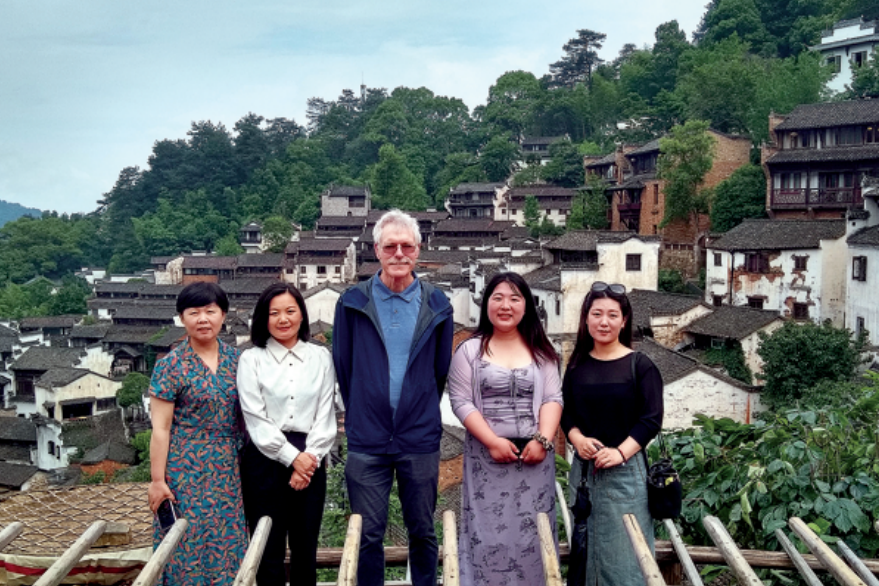Western countries' 'bloc politics' condemned

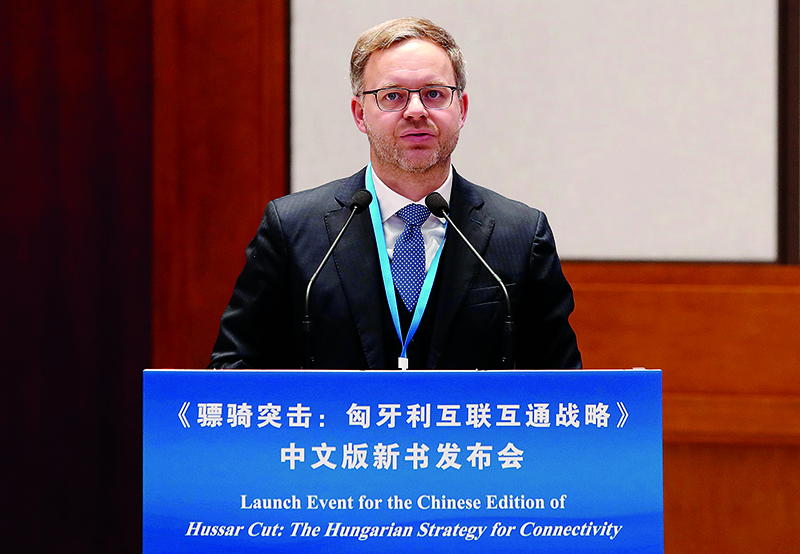
Cold War mentality is not in the best interest of the West, and countries around the world should seek mutually beneficial cooperation, a senior Hungarian official said, adding that his country hopes to enhance relations with China.
Balazs Orban, the political director in the office of the Prime Minister of Hungary, highlighted the shifting global power dynamics, noting the decline of Western dominance and the emergence of new power centers. He emphasized the need for a balanced approach to maintain global peace and prosperity in addressing the changing world order.
"Unfortunately, some Western countries and politicians choose to advocate a 'bloc formation' logic, which is a new type of Cold War logic. This approach suggests that Western countries should get closer to each other in all terms, cut ties with the rest of the world, and prepare for potential further confrontation with those countries not part of their bloc," Orban said.
He made the remarks at the launch event for the Chinese edition of his book Hussar Cut: The Hungarian Strategy for Connectivity, organized by the Institute of European Studies, Chinese Academy of Social Sciences and the China Social Sciences Press on Thursday in Beijing.
Orban argued in his book that the resurgence of Cold War rhetoric is actually not in the best interest of the Western world, as it creates unnecessary conflicts within the West and heightens the risk of military clashes. Additionally, economic decoupling and de-risking will be extremely costly, essentially amounting to "winning a battle but losing the war", he wrote in the book.
At the launch event, the EU's recent decision to increase tariffs on Chinese-made electric vehicles was singled out by Orban as particularly misguided.
He described the move as a "terrible decision" that undermines the interests of European companies. European car manufacturers, whom the EU claims to protect, are openly opposing the idea of introducing tariffs, Orban said. "It's a very irrational statement from the European side."
Orban called for Europe to resolve trade tensions with China and embark on a new phase of peaceful and prosperous cooperation.
"What we are waiting for is to change the strategy, launch a different course where the fruitful and peaceful, mutually beneficial and stable EU-China cooperation can play a very important role," he said.
He said Hungary has a longstanding relationship of cooperation with China, emphasizing the two sides see the changing world order in a very similar way and both want to avoid confrontations.
"We don't see the rise of China as a threat. We do see it as an opportunity for everyone to get involved in the modernization of China. In many sectors, China possesses the most advanced technologies, providing opportunities to learn from Chinese companies and their know-how, thereby boosting one's own economy," he said.
Orban concluded by advocating strategies based on connectivity rather than decoupling, suggesting that countries adopting such approaches would avoid economic stagnation and emerge as economic winners in the 21st century.
yangran1@chinadaily.com.cn
















